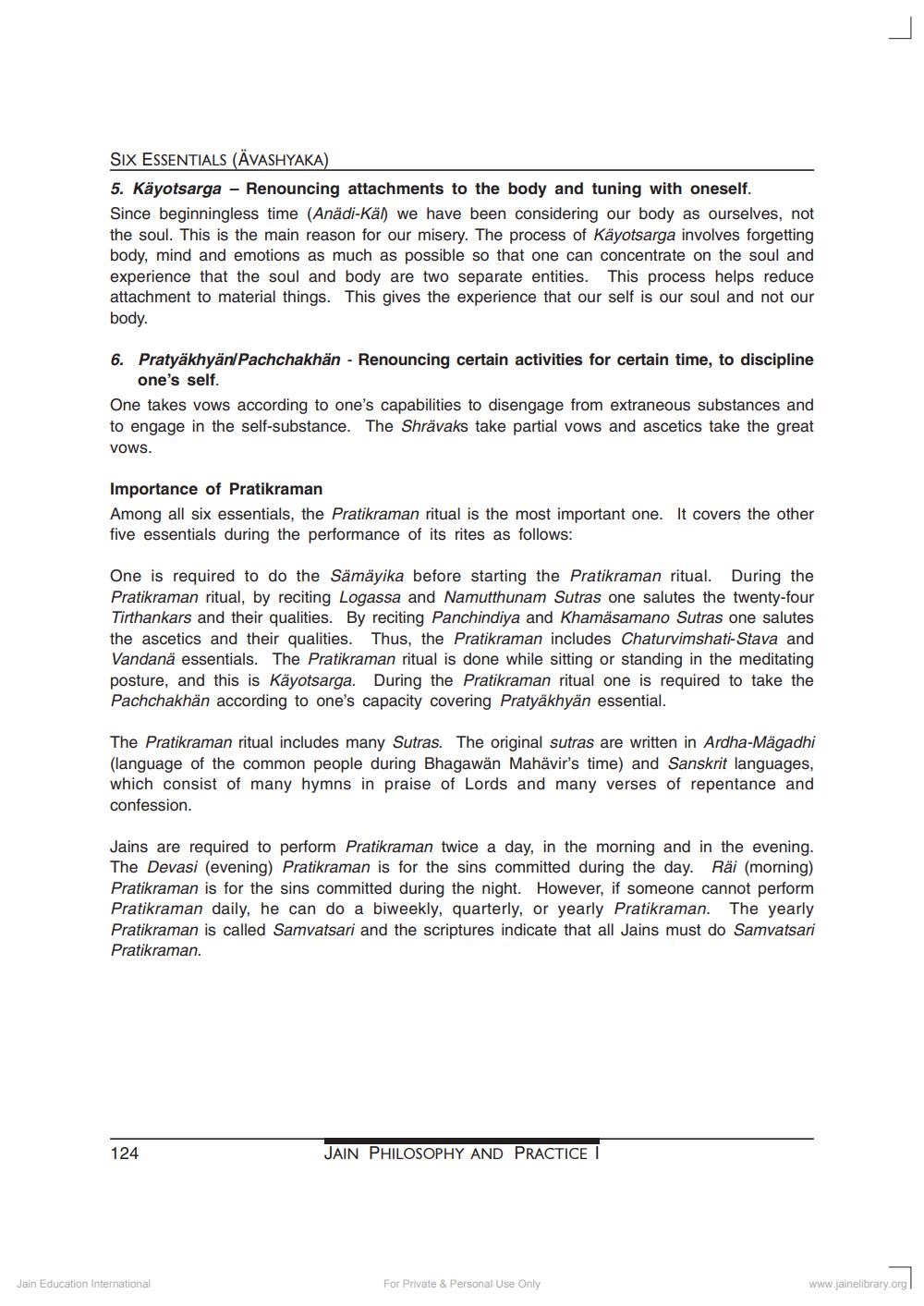________________
SIX ESSENTIALS (ÄVASHYAKA) 5. Käyotsarga - Renouncing attachments to the body and tuning with oneself. Since beginningless time (Anädi-Kä) we have been considering our body as ourselves, not the soul. This is the main reason for our misery. The process of Käyotsarga involves forgetting body, mind and emotions as much as possible so that one can concentrate on the soul and experience that the soul and body are two separate entities. This process helps reduce attachment to material things. This gives the experience that our self is our soul and not our body.
6. Pratyakhyän/Pachchakhän - Renouncing certain activities for certain time, to discipline
one's self.
One takes vows according to one's capabilities to disengage from extraneous substances and to engage in the self-substance. The Shrävaks take partial vows and ascetics take the great vows.
Importance of Pratikraman Among all six essentials, the Pratikraman ritual is the most important one. It covers the other five essentials during the performance of its rites as follows:
One is required to do the Sämäyika before starting the Pratikraman ritual. During the Pratikraman ritual, by reciting Logassa and Namutthunam Sutras one salutes the twenty-four Tirthankars and their qualities. By reciting Panchindiya and Khamasamano Sutras one salutes the ascetics and their qualities. Thus, the Pratikraman includes Chaturvimshati-Stava and Vandana essentials. The Pratikraman ritual is done while sitting or standing in the meditating posture, and this is Käyotsarga. During the Pratikraman ritual one is required to take the Pachchakhän according to one's capacity covering Pratyakhyan essential.
The Pratikraman ritual includes many Sutras. The original sutras are written in Ardha-Magadhi (language of the common people during Bhagawan Mahävir's time) and Sanskrit languages, which consist of many hymns in praise of Lords and many verses of repentance and confession
Jains are required to perform Pratikraman twice a day, in the morning and in the evening. The Devasi (evening) Pratikraman is for the sins committed during the day. Räi (morning) Pratikraman is for the sins committed during the night. However, if someone cannot perform Pratikraman daily, he can do a biweekly, quarterly, or yearly Pratikraman. The yearly Pratikraman is called Samvatsari and the scriptures indicate that all Jains must do Samvatsari Pratikraman.
124
JAIN PHILOSOPHY AND PRACTICE
Jain Education International
For Private & Personal Use Only
www.jainelibrary.org




